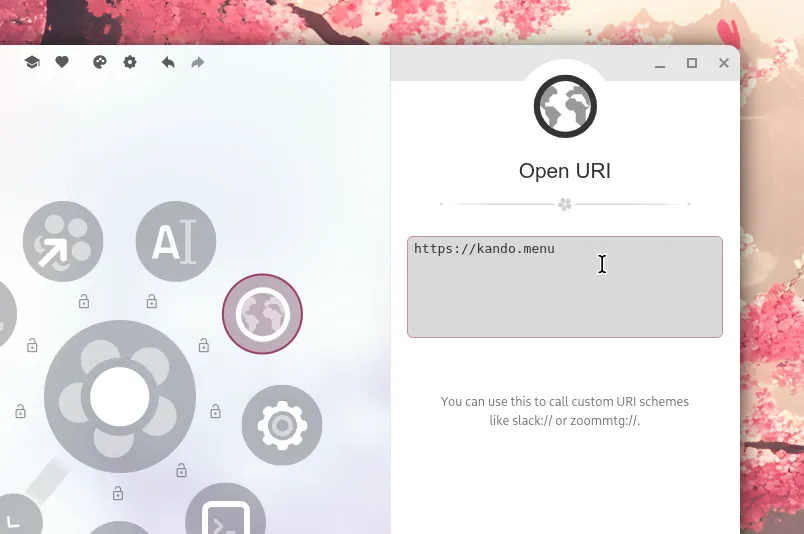An URI item can not only be used to open a website but also to open any URI that your operating system can handle. This includes opening files, directories, or even other applications.
Open URI

Example URIs
Section titled “ Example URIs”Here are some examples of URIs that you can use with the Open-URI item:
- http://example.com - Opens the website
example.comin your default browser. - file:///path/to/file.txt - Opens the file
file.txtin your default text editor. - mailto:foo@bar.com - Opens your default email client to send an email.
Placeholders
Section titled “ Placeholders”You can use placeholders in the URI which will be replaced by some actual values when the URI is opened. This allows for some very advanced use-cases! Below are the available placeholders:
{{app_name}}: The name of the application which was focused when the menu was opened.{{window_name}}: The title of the window which was focused when the menu was opened.{{pointer_x}}: The x-coordinate of the mouse pointer when the menu was opened.{{pointer_y}}: The y-coordinate of the mouse pointer when the menu was opened.
Example Configuration
Section titled “ Example Configuration”If you happen to edit your menus.json file by hand, you can create an Open-URI item with something like the following.
You can read more about the structure of the menus.json file in its documentation.
The data property of the menu item must contain a uri property which contains the URI to open.
// ...{ "name": "GitHub", "type": "uri", "icon": "github", "iconTheme": "simple-icons", "data": { "uri": "https://github.com" }},// ...